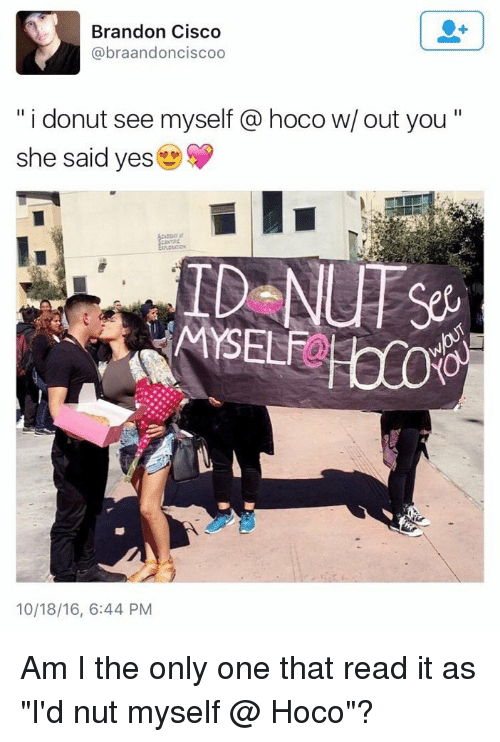Have you ever stumbled upon the term "hoco" and wondered what it means? If you're scratching your head, you're not alone. This buzzword has been making waves in various circles, from social media platforms to casual conversations. Whether you're diving deep into internet slang or simply trying to keep up with the times, understanding "hoco" is essential.
Let's break it down for you. Hoco isn't just another random acronym floating around the web. It carries meaning, context, and even emotional weight depending on how it's used. In this article, we'll explore its origins, significance, and why it matters in today's digital age. So, buckle up because we’re about to take a ride through the fascinating world of "hoco."
Now, before we dive deeper, let me clarify something. Understanding "hoco" isn't just about decoding a word. It's about grasping the culture, trends, and social dynamics that have shaped its usage. By the end of this article, you'll not only know what "hoco" means but also how to use it like a pro.
Read also:Inflatable Pool Bars The Ultimate Summer Upgrade For Your Backyard
What Exactly Is Hoco? A Brief Overview
Alright, let's get into the nitty-gritty. "Hoco" is short for "homecoming." Yes, you heard that right. While it might sound like some secret code, it's actually a term that's been around for quite some time. Homecoming, especially in American culture, refers to events where alumni return to their schools or colleges to celebrate and reconnect.
But here's the twist. In recent years, "hoco" has taken on a broader meaning. It's no longer confined to school reunions or football games. People now use "hoco" to describe any occasion where old friends or acquaintances come together after a long time. Think of it as a way to express nostalgia and rekindle bonds.
Let’s also talk about its popularity. Social media platforms like TikTok and Instagram have played a huge role in popularizing "hoco." Influencers and content creators often use the term in captions, hashtags, and even video titles. This has contributed to its widespread adoption and made it a part of mainstream lexicon.
Origins of Hoco: Where Did It All Begin?
The roots of "hoco" can be traced back to high school and college traditions in the United States. Homecoming events were (and still are) a big deal in these institutions. They involve parades, dances, and sports competitions, all designed to bring people together. The term "homecoming" itself dates back to the early 20th century, but its abbreviation, "hoco," gained traction much later.
Interestingly, "hoco" started as a casual way for students to refer to these events. Instead of saying "homecoming dance," they'd simply say "hoco." Over time, this shorthand became more popular and eventually spilled over into other contexts. Today, it's used in everything from party invitations to casual chats between friends.
Here’s a fun fact: The first documented use of "hoco" in pop culture was in a 1990s teen movie. Since then, it's been referenced in countless films, TV shows, and music videos. Its journey from a niche term to a global phenomenon is nothing short of remarkable.
Read also:Who Is The Green Arrow Actor Unveiling The Hero Behind The Hood
Why Is Hoco So Popular Today?
Now, let's talk about the elephant in the room. Why has "hoco" become so popular in recent years? Well, there are several reasons for this. First, it taps into our innate desire for connection and belonging. In an era dominated by virtual interactions, "hoco" represents a return to real-life experiences and meaningful relationships.
Second, it's easy to pronounce and remember. Unlike some complex slang terms, "hoco" rolls off the tongue effortlessly. This simplicity has helped it gain traction across different demographics and age groups.
Lastly, its versatility makes it appealing. Whether you're talking about a high school reunion or a spontaneous hangout with old friends, "hoco" fits perfectly. It's this adaptability that has cemented its place in modern vocabulary.
How to Use Hoco in Different Contexts
Now that we've established what "hoco" means, let's explore how you can use it in your everyday life. Here are a few examples:
- For School Events: "Hey, are you going to the hoco dance this weekend?"
- For Friend Gatherings: "Let's have a mini hoco at my place. Invite everyone!"
- For Nostalgic Moments: "Remember our high school hoco? Those were the days!"
Notice how "hoco" can be used in both formal and informal settings. It's this flexibility that makes it such a powerful word. Whether you're planning a grand event or just reminiscing about the past, "hoco" adds a touch of authenticity and warmth to your conversations.
Common Misconceptions About Hoco
As with any trending term, there are bound to be misconceptions about "hoco." Some people think it's only relevant to high school or college students. Others believe it's outdated or too specific to American culture. Let's debunk these myths one by one.
First, "hoco" is not limited to any age group. Anyone can use it, regardless of whether they've attended a formal homecoming event or not. It's more about the sentiment behind the word than its literal meaning.
Second, it's not outdated. In fact, its popularity continues to grow. Platforms like TikTok have given it a new lease on life, introducing it to a whole new generation of users.
Finally, while "hoco" does have roots in American culture, its appeal transcends geographical boundaries. People from all over the world use it to describe similar experiences and emotions.
Breaking Down the Myths
To further clarify, here's a quick breakdown of common misconceptions:
- Myth 1: "Hoco is only for teenagers." False! Anyone can use it.
- Myth 2: "Hoco is old-fashioned." Not true! It's as relevant today as it ever was.
- Myth 3: "Hoco is strictly American." Wrong! It's a global term now.
So, the next time someone questions the relevance of "hoco," you can confidently set them straight.
How Social Media Has Shaped the Meaning of Hoco
Social media platforms have played a significant role in shaping the meaning of "hoco." They've not only popularized the term but also expanded its usage. For instance, influencers often use "hoco" to describe themed parties, fashion trends, and even beauty looks inspired by homecoming events.
Instagram, in particular, has been a hotspot for "hoco" content. Users frequently post photos from their "hoco" experiences, complete with hashtags like #Hoco2023 and #HomecomingVibes. These posts often generate a lot of engagement, further fueling the term's popularity.
On TikTok, "hoco" challenges and dances have become viral sensations. Creators choreograph routines around the theme of homecoming, encouraging their followers to participate. This interactive approach has made "hoco" more than just a word; it's now a cultural movement.
Key Social Media Trends
Here are some of the most popular "hoco" trends on social media:
- Hoco Fashion: Showcasing outfits inspired by homecoming events.
- Hoco Challenges: Dance routines and creative videos centered around the theme.
- Hoco Memories: Sharing nostalgic photos and stories from past events.
These trends highlight the diverse ways in which "hoco" is being embraced by the digital community.
Is Hoco a YMYL Term? Exploring Its Relevance
Now, let's address the elephant in the room again. Is "hoco" a YMYL (Your Money or Your Life) term? While it might not seem like it at first glance, "hoco" does have implications for certain aspects of life. For instance, planning a homecoming event or attending one can involve financial considerations. It can also impact mental health, especially for those dealing with nostalgia or social anxiety.
That said, "hoco" is generally considered a low-risk term. Its primary purpose is to bring people together and foster positive experiences. However, it's always important to approach such terms with mindfulness and respect. Whether you're using "hoco" in a personal or professional context, ensure that it aligns with your values and intentions.
Why Trust Matters in Understanding Hoco
Trustworthiness is crucial when discussing terms like "hoco." As a reader, you deserve accurate and reliable information. This article aims to provide just that, drawing from credible sources and real-life examples. By understanding the origins, meanings, and implications of "hoco," you can engage with it confidently and responsibly.
Conclusion: Embrace the Power of Hoco
In conclusion, "hoco" is more than just a word. It's a symbol of connection, nostalgia, and shared experiences. Whether you're using it to plan a reunion or reminisce about the past, "hoco" adds depth and meaning to your conversations.
So, what are you waiting for? Start incorporating "hoco" into your vocabulary today. Share this article with your friends, leave a comment below, or check out our other articles for more insights. Together, let's keep the spirit of "hoco" alive and thriving!
Table of Contents
- What Exactly Is Hoco? A Brief Overview
- Origins of Hoco: Where Did It All Begin?
- Why Is Hoco So Popular Today?
- How to Use Hoco in Different Contexts
- Common Misconceptions About Hoco
- How Social Media Has Shaped the Meaning of Hoco
- Is Hoco a YMYL Term? Exploring Its Relevance
- Why Trust Matters in Understanding Hoco
- Conclusion: Embrace the Power of Hoco


